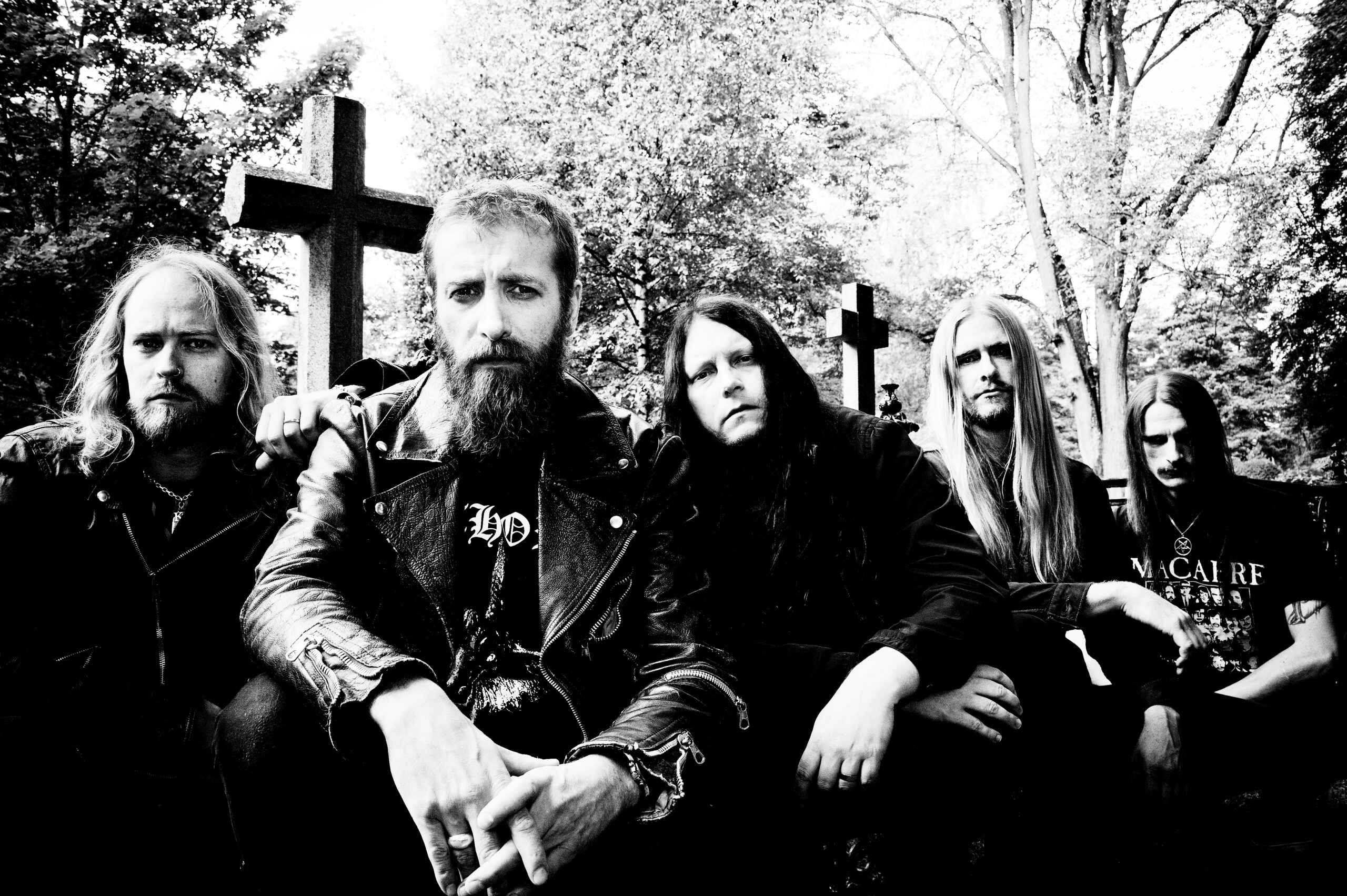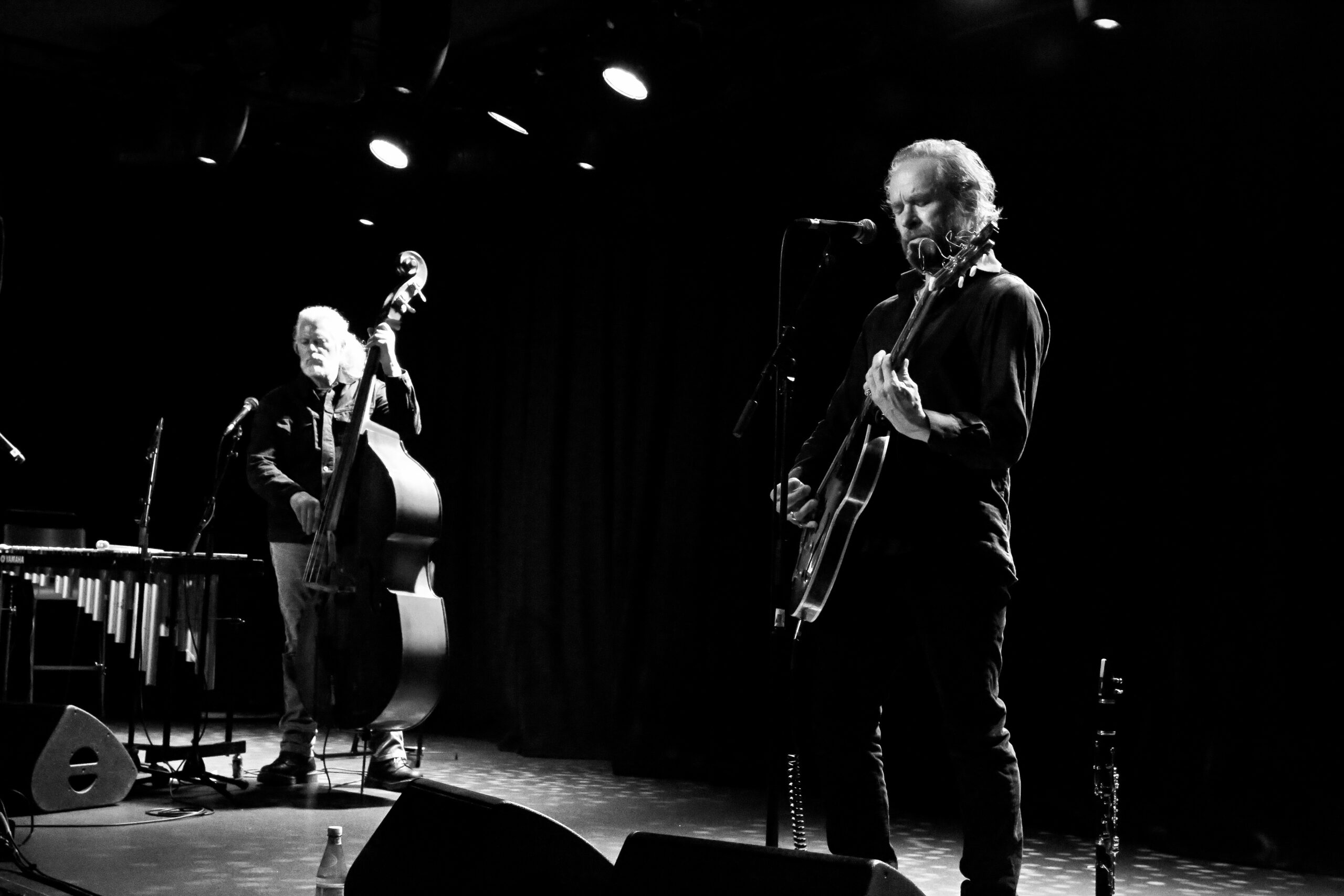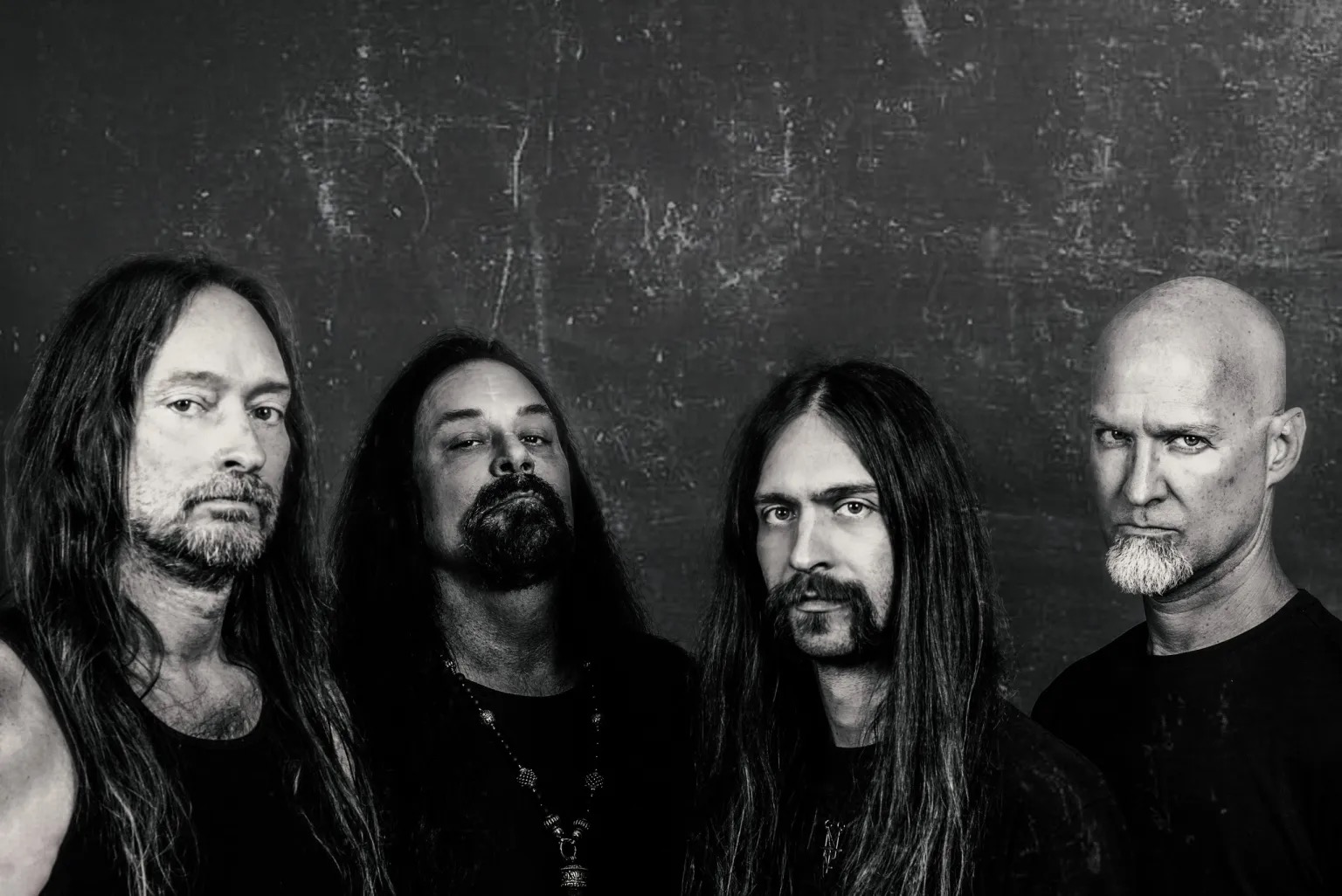MAN ON MAN is a special project, formed during the darkest hours of the pandemic, by Roddy Bottum (Faith No More, Imperial Teen) and his boyfriend Joey Holman. The resultant album is very much an album of love written from the perspective of two people finding comfort in one another during a difficult time. A celebration of togetherness, MAN ON MAN are proudly, gleefully gay, but that is not to imply exclusion. With its rich array of catchy hooks and lightly fuzzed guitars, it’s an aural roadtrip that offers a little light to anyone feeling worn down by the endless cycles of lockdown and release that have become commonplace. You can read our full review here. We caught up with both Roddy and Joey to put some questions about the formation of the band, the writing of the album and some of the bumps in the road. Check it out below:

I love the idea of creating an artistic project centred around togetherness at a time when everyone found themselves retreating into their own shells – was there always the intention to release the album, or was there a point where you looked at one another and recognised that you had something musically special that you wanted to share?
Roddy: We started out with the intention of passing time in quarantine and processing the grief and the hardship of getting through the pandemic. That intensity kind of grew and grew. My mom was real sick so we were dealing with that and then the Uprising happened and that was very emotional. We wrote music together to pass the time and to explore creatively in a form of catharsis to get us through it.. The songs started to take a shape as a whole, a time capsule that was a contemplation on all of the grief. But also the celebration of us and our love. The fact that it addresses the specific time of the pandemic came up as we went along. As did the notion of a record. We didn’t set out to make a record but it became clear pretty quickly that we were on to something bigger than the two of us.
According to interviews you’ve given around the project, you were in Brooklyn when it all kicked off, and took a truck to California – the album itself feels a lot like a soundtrack to a roadtrip – is that were the idea kicked off?
Joey: The idea did come about while we were driving through Texas, just about three days before we arrived on the west coast. It’s a big compliment to say the record feels like a road trip, because that implies it’s a journey.
What’s remarkable about the album, to me, is that it’s suffused with positivity at a time when so many people have been tempted to consider a darker aspect – did you find the act of creating the album reaffirmed your commitment to one another at the same time?
Roddy: We were fortunate, are fortunate, to have each other through this. It’s something we’re both really grateful for. The time of the writing of the record was really dark. A lot of the record goes there but I’m happy to hear you find the positivity in it. That positivity definitely comes from the strength we found in each other, together. There are so many dark ramifications of the pandemic. We touch on darkness in the collection of songs but ultimately the togetherness and our relationship enabled us to come from an optimistic place.
Can you tell us a little about the actual recording of the album – how did you piece it all together with the various lockdowns and restrictions in place?
Joey: By design, the setup was incredibly simple. Before we got to California, we called ahead to a music gear dealer and got a few pieces of recording equipment – a microphone, midi controller, some mic stands – so they’d be at our quarantine location when we arrived. Nothing too complicated. We knew we had the power of a computer at our hands, and you can do a lot with recording software these days. For the actual recording, we relied only on ourselves, so it wasn’t actually that difficult recording. We took our gear to a couple of different locations (Oxnard and LA) because it was fairly portable.
There’s so much wordplay on the album and I’ve always had this sense of Roddy as a very mischievous wordsmith ever since I first heard Be Aggressive – did you have fun kicking lyrics back and forth while writing the album, because it sure sounds like you did!
Joey: It was really fun getting to know Roddy on a new level, in that way. We both have really different styles of how we write, so it was refreshing to see his method. I’m someone who honestly never writes down any of my lyrics; I typically just sing whatever comes out and make it work along the way. Roddy actually takes the time to sit down, work out ideas, and then work them into the song. I would say we both influenced each other a lot lyrically as well. I’m a bit more literal with my approach, where Roddy is more of a poet, if you will. I think where I may lean toward being too laid back at times, Roddy pushed me to think more about what I’m saying. Conversely, I think I influenced Roddy to sometimes express his lyrics in a more straight-forward kind of way. Some of my favorite memories are us waking up early, going to the beach, and watching the surfers as we tried out different lyrical ideas. Once we had something we thought would work, we would sing the idea into our phones so we wouldn’t forget it and take it back home to record.
The final track on the album, It Floated, feels very different – there’s a poignancy in the stripped-down vibe – almost as if there’s a sadness that the process of crafting the album had come to an end. Could you tell me a little about the inspiration for the track?
Roddy: That song definitely comes from more of a forlorn and contemplative mindset. I was interested in singing about something simple and figurative, looking at it from a perspective of wonderment and adding depth in a symbolic way. The song is about a ball. How it bounces, rolls, and floats.
Roddy, you’ve spoken previously of the fact that, when you came out in 1993, it felt like something that was dangerous to do – although it feels like things are progressing, it’s notable that there was some resistance to the imagery of the band – do you feel that by inspiring (and perhaps provoking) through your art, you are making it easier for those who, perhaps, have felt forced to hide their identity?
Roddy: That would be the goal for sure, to make things easier for those who don’t have it as easy. The process of coming out of the closet in our community is usually filled with so much turmoil and emotion. It’s a time when we stare the world down, hold our ground and rise to the occasion of self worth and celebration. It defines us and I don’t take that process lightly. Things are progressing for sure but there is still a lot of resistance and homophobia. I relish the idea of presentation of two men like me and Joey and our place in the queer community. I’m a big fan of provocation and fighting for who I am and what I believe in. If it ruffles feathers I know I’m doing a good job.
As you mentioned, with reference to the Daddy video, representation is still something that’s very important in any community – was that always a consideration when you developed the aesthetic around the album?
Joey: I think each step along the way informed more and more where we wanted to head. For DADDY, we just did what we wanted to do. There was no grand mission to represent anyone or anything except ourselves and what we were interested in showing the world. But once the video actually came out, we started getting feedback from our community that was really inspiring and meaningful. A lot of people said they connected with what we were doing because we didn’t follow a specific stereotype – we didn’t fit this neutered aesthetic and sound that comes with the type of LGBTQIA+ artists who get the most visibility. So that feedback encouraged us to continue in the direction we were going. We also feel like the queer world doesn’t show tenderness and affection without inserting camp or a joke or trying to make it really “fierce.” I think the world needs to see honest examples of two men in love and it not be a punchline.
It’s utterly bizarre that Daddy was briefly banned by YouTube- it feels like there’s still an incredible hypocrisy when it comes to what is acceptable and what is not, when it comes to sexuality.
Joey: It feels bizarre to us too, but once you look at who’s running the show, it’s not that surprising. Part of queer culture is sexual liberation, so I think very normal imagery for us is going to be shocking to other people and deemed too sexual. I also find it confusing mainly because I don’t think DADDY is actually that sexual. I understand its sensuality, but to me it feels more amateur and fun than a sexual video. In the end it taught us that, while it sucked being banned, the bigger issue YouTube has is not monetizing the videos of BIPOC who are achieving millions and millions of streams because it’s not something YouTube would proudly show their advertisers. Their idea of what is quality vs. what is sellable is beyond questionable and honestly quite disturbing. And they’re blatant about it.

One of the things I most enjoyed about the album as a whole is its inclusivity – it’s an album of love, and it’s something that anyone can find hope and comfort in – that’s such an important message to share right now isn’t it – especially with the division we’ve seen both in the UK and US.
Roddy: Thanks for saying that. When we released our first video we got an awful lot of feedback from people all over the world who were grateful for us sharing a look and a sound that suggested more than your average queer, pretty boy, campy, dance feel. We love pretty boys and camp and dance but we’re big men. I’m older. We play guitars. We don’t fit a stereotype. Our goal was to open the forum of gay represenation to a variety and myriad of looks and flavors. That feels really important right now particularly especially with all of the division, yes.
Do you have any hopes of taking this music out on the road when things ease?
Roddy: Yes, we just started working with a booking agent. It feels like things will start to open up soon. We are looking forward to riding the crest of the wave of first shows that start to roll out. It’s going to be an amazing time. I’m like everyone else in my community, I can’t wait for the time where we can all be together physically. This separation, ironically, has kept us well but there’s an element of it that’s made me sick. I can’t wait to perform live.
Any final words for the people discovering MAN ON MAN for the first time?
Joey: Go to our website and join our Chosen Family. We’re constantly doing projects to take people off their phones and connect to real people in meaningful ways. We just finished a pen-pal project that had over 500 people sign up from all over the world. We also just wrapped up the first issue of our zine, where we gave our community the chance to display their artwork to a worldwide audience. We’re going to keep making the zine, but we also have more fun things in the works. If you’re a queer person and you’re looking for a community, we got you. Go to www.manonmanmusic.com/chosen-family.
Thank you so much for your time.
Joey and Roddy: Thank you! Great questions. We appreciate your thoughtfulness!










Leave a Reply